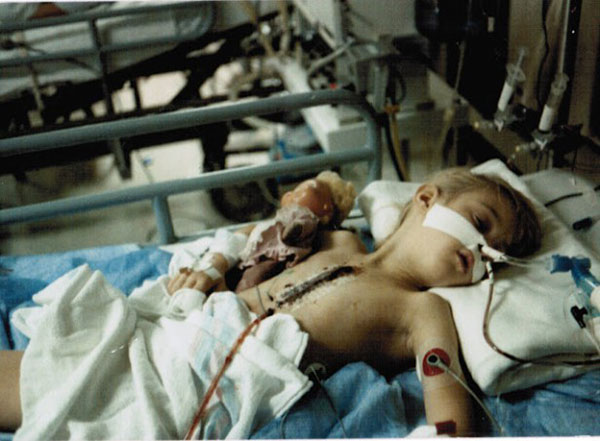MarlaJan Wexler’s Courageous Speech at CCCC’s Annual Summit Underscored Importance of Person-Centered Care and Hard Conversations
Get a bunch of palliative care providers and advocates in a room for two days and there’s sure to be compelling stories, fascinating studies, and important information about what we should be doing to advance the field. The Coalition for Compassionate Care’s 2018 Annual Summit overflowed with that kind of wonderful content, but it also confronted what happens when compassionate care flies out the window – and how we should learn from those mistakes.
A personal and powerful presentation drove home that point. It was delivered by 36-year-old MarlaJan Wexler, who was born with a complex congenital heart defect that led to four open-heart surgeries by the time she turned 6. Wexler, who went on to become a pediatric cardiac ICU nurse before lupus sidelined her career, tearfully told summit attendees about the life-saving yet brutal medical procedures she experienced during childhood.

A Child’s Nightmare
Many of Wexler’s experiences – which occurred before hospitals widely embraced things like patient- and family-centered care, child life specialists and continuous pain management – left her with Post Traumatic Stress Disorder that continues to affect her today. Here’s how Wexler described just one of her childhood traumas:
“One morning I was resting quietly in bed. I didn’t feel well. The room to my door flew open, startling me out of sleep. In walked a man I didn’t know, heading toward me. He towered over my tiny frame in the small bed, threw back the covers and exposed my body. As he leaned down silently, I saw he had something sharp and shiny in his hand. I screamed. I thrashed around trying to push his hands away but he overpowered me.
I watched in horror as the scissors came closer. I begged him not to hurt me, screamed for my mom, but he continued toward my chest with the scissors. He hurt me. The pain was sharp and it was piercing. There was pushing, pulling and tugging. And what came next just took my breath away. I stopped thrashing and submitted to the pain, knowing that if I kept fighting him, he would just continue to hurt me more.
Just as quickly as he entered the room, he left. He didn’t even pull the covers back up over me, leaving me cold, scared, crying and frightened. That was in 1987, lying in a hospital bed, about a week after my fourth heart surgery. The man was a surgical resident who came in without warning, without saying a word to me, without giving me pain medications or waiting for someone to hold my hand… He cut and removed staples from my chest and pulled out chest tubes.
He was so hell-bent on completing the task he was surely given by the attending physician that he didn’t realize a human being – let alone a small child who didn’t understand – was the one in the bed enduring the pain he inflicted.”
Why Conversations Matter
Through countless other procedures and years of continuing treatment, Wexler said, no social worker or clinician ever sat with her and asked her how she felt. Thirty years later, on the CCCC stage, she courageously laid bare the lasting and devastating effects such treatment had on her psychological and emotional health, her relationships, and her sense of self.
Her healthcare experiences may sound barbaric within the framework of modern medicine – and certainly incongruous with the patient-centered approach of palliative care – but Wexler used them to remind clinicians how crucial it is to see their patients as people and to engage them in difficult discussions about pain and suffering:
“These conversations are intense and painful. Nothing about this is easy for a patient or a provider. My hope is that patients like me don’t have to live a life of fear. No two people experience things the same, but trauma is trauma, hard is hard. Support us, let us know you are on our side… Have the hard conversations.”
You can read more about MarlaJan Wexler on her blog www.luckfupus.com, or watch a video of her CCCC remarks here (go to 1:06:00 in the recording.) If you missed this year’s Annual Summit, check out the other great presentations on the Coalition’s Facebook page here.




